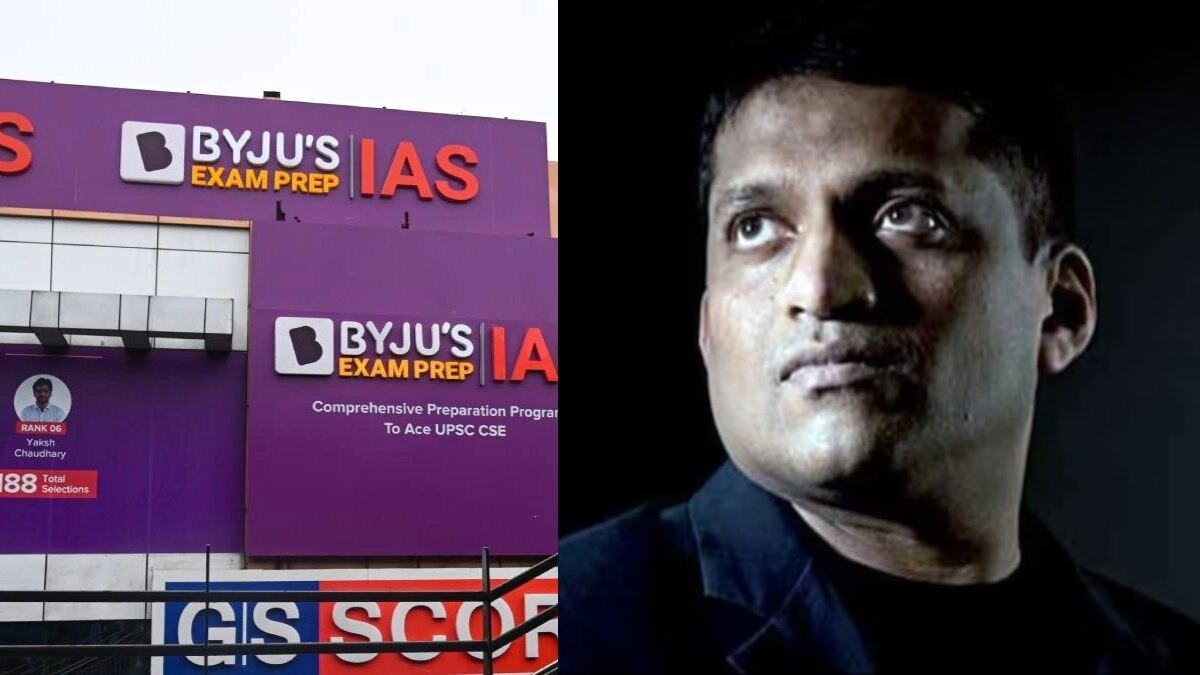BYJU’s founder and CEO Byju Raveendran refuted allegations labelling him a “fugitive,” calling them part of a “fake narrative” driven by a coordinated media and legal campaign to wrest control of the embattled edtech company.
In an exclusive interview with ANI, Raveendran alleged that certain US-based lenders were behind efforts to tarnish the company’s image. “They have destroyed value for all stakeholders—investors, employees, everyone,” he said, accusing them of creating “prejudice” in Indian courts by branding him and his brother as fugitives.
“These are narratives that they have created in trying to take control of the company. Unfortunately, in a company that is built on the founders’ name, or where the founder played an important role in the early years, they miss the fact that if you tarnish the founder’s name, it’ll have a huge impact on the company’s valuation,” Raveendran told ANI.
The edtech giant, once valued at $22 billion, has seen its fortunes nosedive amid mounting financial troubles, regulatory scrutiny, and ongoing legal disputes.
In further addressing the allegations of being labeled a “fugitive,” Raveendran emphasized that this claim was merely a component of what he referred to as a “malicious media campaign.” He clarified that the term was only mentioned verbally and was not included in any official documentation.
He added, “Our entire wealth and company were established in India. All profits were generated within India, taxes were paid in India, and investments were reinvested in India.”
ED probe
Raveendran clarified that the Enforcement Directorate’s investigation into the company is focused on corporate matters and not on him personally. He emphasized that they have always freely traveled to India from Dubai as a base for international expansion, and stated that the allegations are fabricated with no basis in truth. The ED inquiry is company-related and currently at the adjudication stage, not a personal issue.
Regarding the reported lookout circulars, Raveendran mentioned that they were leaked information and not officially disclosed by the ED. He explained that the ED does not publicize such notices to maintain the integrity of their investigations, attributing any confusion to misleading media reports.
Raveendran also clarified that there has been no chargesheet or Prevention of Money Laundering Act (PMLA) case against him, only summons to which he has cooperated.
“I have been traveling to India like even after the ED inquiry started. First of all, if ED puts out a lookout notice, they will never make that public because that defeats the purpose. It’s a wrong media narrative around the ED investigation, it was never personal. It was on the think and learn transactions, which was other than a few misses on the filing timelines, there was never a PMLA. There was never a charge sheet. There were summons, I went and met, we cooperated. Investigation is closed. So, the whole narrative was blown out of proportion,” Raveendran noted.
Hedge funds and Term Loan
Raveendran blamed a group of US-based hedge funds for derailing his vision of creating a million teaching jobs in India, calling them “vulture lenders” whose actions devastated the company and its stakeholders.
Raveendran recalled the company’s once-robust financial position, told ANI: “Two years ago, we were sitting on thousands of crores. Today, we have nothing.” He added that despite the crisis, several supporters stepped in to help raise fresh capital. “Many good people backed us over the past two years — and all of them have been individually targeted,” he claimed.
According to Raveendran, the fallout was orchestrated by a handful of American entities. “It’s not a conspiracy by many. It’s literally two hedge funds — some Americans and a few Indians based in the US,” he said, accusing them of manipulating the situation for personal gain.
Reflecting on a critical financial decision in 2021, Raveendran admitted the company’s mistake in taking a $1 billion term loan despite having equity options available. “We had already raised $5 billion before that. It wasn’t out of desperation. It was a collective decision — but in hindsight, we shouldn’t have taken that loan,” he said.
Raveendran also spoke about BYJU’S employment model and its social impact, particularly for India’s young workforce. “We created around 40,000 teaching jobs and over 2.15 lakh roles for fresh graduates, many of whom had fixed salaries,” he said. “It was more than a business — it was a movement. And all of it was lost because of the greed of a few.”







